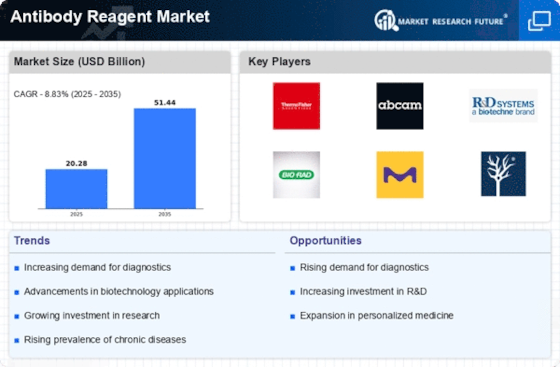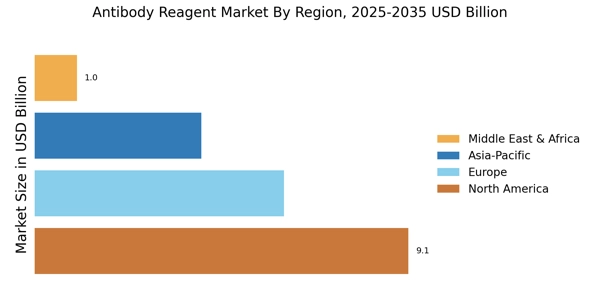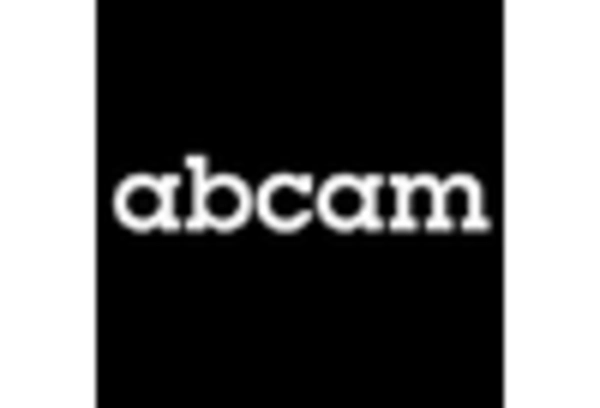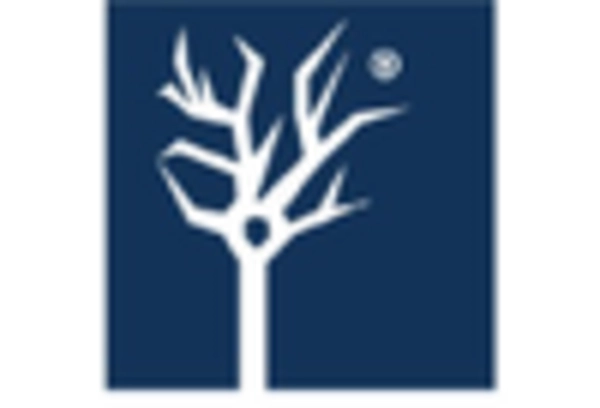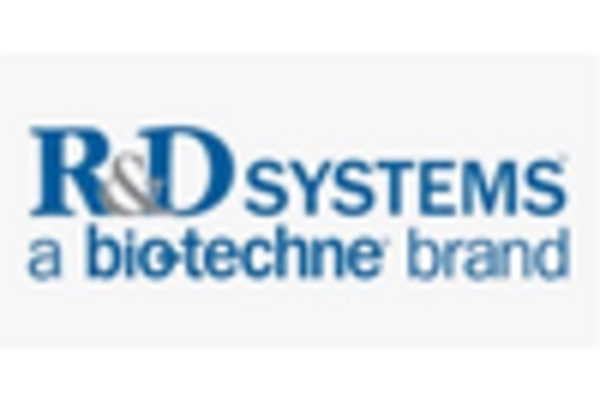Expansion of Diagnostic Applications
The expansion of diagnostic applications is a significant driver for the Antibody Reagent Market. With the increasing emphasis on early disease detection and monitoring, antibody reagents are being utilized in a wide array of diagnostic tests, including ELISA, Western blotting, and immunohistochemistry. The market for diagnostic reagents is projected to grow at a compound annual growth rate of approximately 7% over the next five years, reflecting the rising demand for accurate and reliable testing methods. This trend is further supported by the growing awareness of preventive healthcare and the need for personalized medicine. As healthcare providers seek to enhance diagnostic accuracy, the reliance on antibody reagents is expected to increase, thereby propelling the Antibody Reagent Market forward.
Growing Incidence of Chronic Diseases
The rising prevalence of chronic diseases is a critical driver for the Antibody Reagent Market. Conditions such as cancer, diabetes, and autoimmune disorders are becoming increasingly common, necessitating the development of effective diagnostic tools and treatments. According to recent statistics, chronic diseases account for nearly 70% of all deaths worldwide, underscoring the urgent need for innovative solutions. Antibody reagents play a pivotal role in the detection and treatment of these diseases, facilitating early diagnosis and personalized therapy. The increasing focus on early intervention strategies is likely to propel the demand for antibody reagents, as healthcare providers seek to improve patient outcomes. Consequently, the Antibody Reagent Market is expected to witness substantial growth as it adapts to the evolving healthcare landscape.
Rising Investment in Biotechnology Sector
The rising investment in the biotechnology sector is a crucial driver for the Antibody Reagent Market. As governments and private entities allocate more resources to biotechnology research, the demand for antibody reagents is likely to escalate. Recent reports indicate that global investments in biotechnology are projected to exceed 500 billion USD by 2027, reflecting a robust growth trajectory. This influx of capital is expected to foster innovation and development within the antibody reagent space, leading to the introduction of novel products and applications. Additionally, the collaboration between academic institutions and biotech companies is likely to enhance research capabilities, further driving the demand for high-quality antibody reagents. Consequently, the Antibody Reagent Market stands to benefit significantly from these investment trends.
Increase in Research and Development Activities
The Antibody Reagent Market is experiencing a notable surge in research and development activities. This trend is primarily driven by the increasing demand for innovative diagnostic and therapeutic solutions. In recent years, investments in biotechnology and pharmaceutical research have escalated, with R&D spending projected to reach approximately 200 billion USD by 2026. This influx of funding is likely to enhance the development of novel antibody reagents, thereby expanding their applications in various fields such as oncology, immunology, and infectious diseases. Furthermore, the growing emphasis on precision medicine necessitates the use of highly specific antibody reagents, which could further stimulate market growth. As researchers continue to explore new avenues for antibody applications, the Antibody Reagent Market is poised for significant advancements.
Technological Advancements in Antibody Production
Technological advancements in antibody production are significantly influencing the Antibody Reagent Market. Innovations such as recombinant DNA technology and hybridoma techniques have revolutionized the way antibodies are produced, leading to higher specificity and efficiency. The introduction of automated systems for antibody generation and screening has further streamlined the production process, reducing time and costs associated with reagent development. As a result, the market is witnessing an influx of high-quality antibody reagents that cater to diverse research needs. Moreover, the integration of artificial intelligence in antibody design is expected to enhance the precision of antibody selection, potentially leading to breakthroughs in therapeutic applications. These technological strides are likely to bolster the Antibody Reagent Market, making it more competitive and responsive to market demands.
.png)

